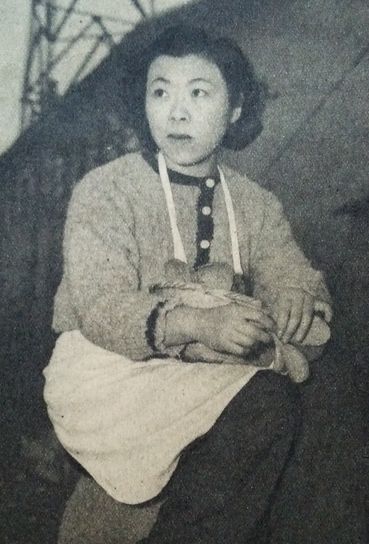Tei Fujiwara from 1949 Asahi Newspaper
As the translator/publisher, I would be delighted to help any book clubs who want to discuss Tei, a memoir of the end of war and beginning of peace.
Background information is on this website. If book clubs have additional questions, please leave a message in this website. We would also love to hear what you thought!
Background information:
Where is Tei Fujiwara now?
Tei passed away at the age of 98 in November 2016. Appearing in the Sankei News, the Japanese obituary
There is a Japanese wikipedia page.
Can we see the Japanese version of her memoir?
Yes, see the page on this website “Story in Japan.”
Can we see the movie based on Tei’s memoir?
A short clip of the black and white movie is on this website. As far as we know, only a VHS version is available in Japan. The Japanese movie is quite different from the book and is very loosely based on Tei’s story.
Discussion Questions: (Also included in the book.)
1. Why does Mr. Fujiwara refuse to leave with his family when they leave Shinkyo?
2. How did members of the dan group get along? In what way is the dan a microcosm of Japanese society in general?
3. Is there any gender difference in the ways they dealt with the hikiage experience?
4. How did the dan members react to the announcement of the end of the war?
5. How does the issue of “race” surface in this narrative?
6. What was the group’s reaction to the death of Tamio Tōda?
7. Why does the narrator hate to see other Japanese peddling soaps or promoting the chintonya band?
8. Under the severe conditions such as those described in the narrative, how did the family relationships change?
9. What do you think about the narrative strategy to completely circumvent larger (geo)political themes and opt for more personal dynamics within the group?
10. Are there critical opinions concerning the Japanese nation-state in the narrative? Why or why not?
11. Why has this book continued to be a bestseller in Japan for so many years?
Thank you to Professor Faye Yuan Kleeman of the Department of Asian Languages and Civilizations at the University of Colorado for creating these questions.
Other resources:
Memory Maps by Mariko Asano
Abandoned Japanese in Postwar Manchuria: The Lives of War Orphans and Wives by Yeeshan Chan
